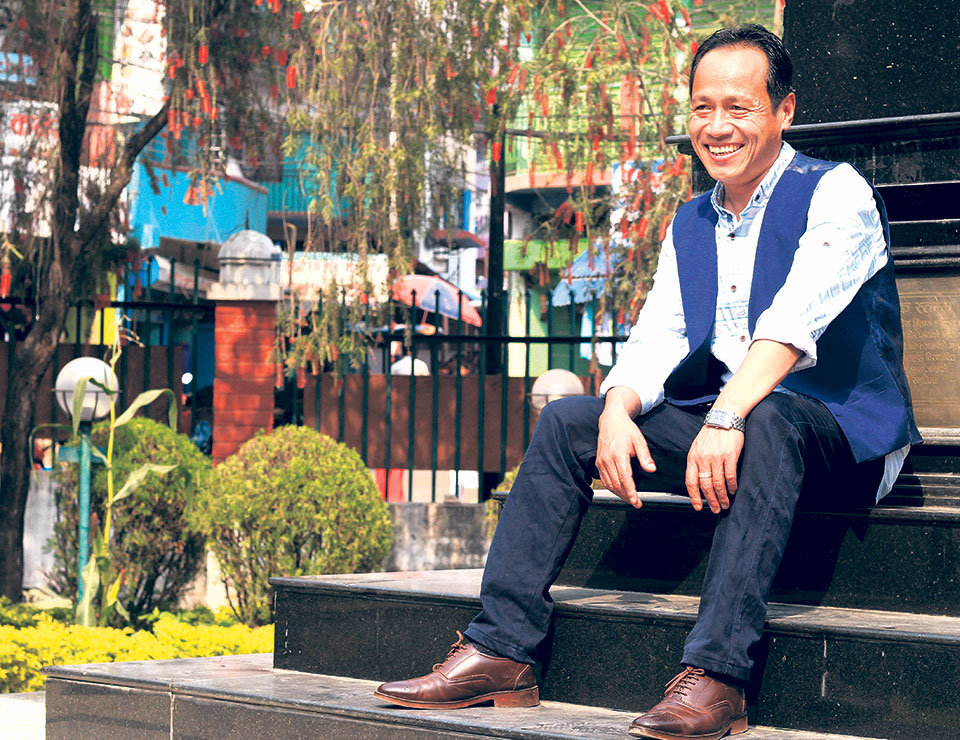Cham: The Dance Meditation (With Video)
5 years ago

5 years ago

5 years ago

5 years ago

5 years ago

5 years ago

His journey from a 14-year-old reticent boy to the winner of many national awards was possible only because of the constant inspiration he received throughout his writing journey.
A poet, novelist and teacher, Rajan Mukarung is an eloquent Nepali litterateur. Having taught at Manokmana Janakalyan Secondary School for three years in Khotang, he was one of the initiators of the campaign called ‘Srijanshil Arajakta’ which was set to unite and encourage young writers.
Brought up in eastern hilly district Bhojpur, his early success in writings won him numerous accolades. His writing career advanced when he moved to Kathmandu in 1997. Awarded with Kirat Puraskar Samman for novel ‘Hechhakupa’, Pahichan Puraskar for ‘Ferido Saundarya’ and Madan Puraskar for ‘Damini Bhir’ in 2012, he thinks he needs to explore and learn more to grow further as a writer.
In an interview with My City’s Sonam Lama, Mukarung shared his experience and insights on being a contributor to Nepali literature.
How did writing happen to you?
Growing up in Bhojpur, I was quite shy as a kid who loved reading poems and stories. I can still remember reading one of the Chinese novels translated into Nepali, Chamkila Raata Tara, which had inspired me and taught me some of the finest lessons of my life. As a young boy I had an early fascination writing poems and muktak. However, I rarely shared them. While a 10th grader, I took part in a poetry competition for the first time. My writing was received well and I was announced the winner of the competition. This little success inspired me to come out of the limited periphery that I had created for myself.
What is the focus of your writing style?
I am somebody who can express. I am a story teller for people who have much to share. Each of my writings is a reflection of the society. It gives voice to the marginalized communities. My writings have so far been vocal about the issues that are unheard of and yet are needed to be addressed. I prefer writing in Mundhumi style that emphasizes on metaphors and similes. I strive to invite positive changes through my writings, which I believe is possible through an individualized approach, giving equal platform to diverse expressions.
Do you keep your readers in mind while writing?
Many writings have been a topic of appraisal and criticism at the same, time which implies to the fact that every reader has their own set of opinions that should be acceptable for the writer. I personally prefer delving deep to the content and subject of my writing rather than keeping the focus on the readers. I acknowledge the fact that reader’s views are subjective and that should not affect the writer to fairly put forth the idea that he has constructed.
From writing to publishing what do you think are the challenges for a writer?
The initial challenge that a writer tends to face is that their book is judged by its cover and not by the content. The work of reading and publishing is politicized. It has dire impacts on the youth who have been struggling to find space in the domain of writing. Limited book market and feeble reading culture has also been hindering writers’ productivity. Moreover, the readers, especially youths, are influenced by western literature. Nepali literature is not much celebrated, which is a challenge not only to the writer but the entire education system.
What do you think are the ethics of fair writing?
The art of fair writing demands rigorous research where your rationale and imagination should come to balance. My definition of fair writing connotes ability to fairly represent the understanding of my subject through writing. I think writers should possess the ability to move the readers making their imagination run through resonant characters.
Between fiction and non-fiction, which is more powerful in your opinion?
When it comes to powerful writing, I believe both of the genres have their own significance and importance. As readers are subjectively categorized, the works of fiction and non-fiction can leave an equal impact to the readers unless the writing could entertain, educate and make their imaginations run wild.
Leave A Comment